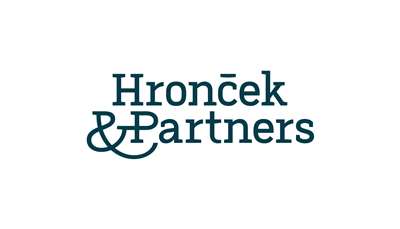According to information published on the official websites of the competent authorities of the European Union (hereinafter also referred to as the "EU"), the European Commission (hereinafter also referred to as the "EC") proposed an ambitious revision of EU pharmaceutical legislation, which was widely discussed by experts. According to the EC, this revision is intended to be the first major update of pharmaceutical legislation since 2004, and after more than 20 years, these regulations are to be adapted to the current needs of the 21st century, taking into account developments that have occurred during this period (e.g. the COVID-19 pandemic, new vaccines, or shortages and disruptions in the supply of medicines, including substances used in their manufacture). The proposals were discussed in April 2024 in the European Parliament and approved by MEPs on April 10, 2024. The proposals were discussed in the European Parliament in April 2024 and approved by MEPs on April 10, 2024. However, the next steps in relation to this legislation will be taken by the new European Parliament after the European elections to be held on June 6-9, 2024.

The purpose of this article is to briefly describe the content and scope of the new legislation and its stated objectives and purpose, based on official information published by the competent authorities.
According to the EC, the main objectives of this revision are:
- to create a single market for medicines and ensure that all patients across the EU have timely and equitable access to safe, effective, and affordable medicines
- to continue to offer an attractive framework for research, development and manufacturing of medicines in Europe that supports innovation
- to significantly reduce the administrative burden by considerably speeding up procedures and shortening the time for authorising medicines so that medicines reach patients faster
- improve the availability of medicines and ensure that medicines can always be delivered to patients, regardless of where they live in the EU
- combat antimicrobial resistance and the presence of medicines in the environment through a 'One Health' approach
- increase the environmental sustainability of medicines.
The review consists of the adoption of two legislative proposals, which are intended to provide a new regulatory framework for all medicines (including medicines for rare diseases and medicines for children):
- a new Directive
- a new Regulation
It also includes a Council Recommendation on antimicrobial resistance.
These proposals replace the existing general pharmaceutical legislation (Regulation (EC) No 726/2004 of the European Parliament and of the Council of 31 March 2004 laying down Community procedures for the authorisation of medicinal products for human and veterinary use and for the supervision of such products and establishing a European Medicines Agency, and Directive 2001/83/EC of the European Parliament and of the Council of 6 November 2001 on the Community code relating to medicinal products for human use) and legislation on medicines for children and for rare diseases (Regulation (EC) No 1901/2006 of the European Parliament and of the Council of 12 December 2006 on medicinal products for paediatric use and amending Regulation (EEC) No 1768/92, Directive 2001/20/EC, Directive 2001/83/EC and Regulation (EC) No 726/2004 and Regulation (EC) No 141/2000 of the European Parliament and of the Council of 16 December 1999 on orphan medicinal products).
New legislation according to the EC proposal
The revision builds on strict quality, safety and efficacy standards for the authorisation of medicines and proposes new tools:
- a transition from a universal system of incentives for pharmaceutical companies to a modulated system of incentives, rewarding companies that meet important public health objectives, such as providing access to medicines in all Member States, developing medicines that address unmet medical needs, conducting controlled clinical trials and developing medicines that can also be used to treat other diseases. For medicines for rare diseases, similar modulation is proposed in the form of commercial exclusivity,
- faster availability of generic and biosimilar medicines and transparency of public funding,
- addressing medicine shortages and ensuring their supply,
- a modern and simplified regulatory framework enabling faster authorisation of new medicines (e.g. the EMA will have 180 days instead of 210 days for assessment. The Commission will have 46 days instead of 67 days to grant marketing authorisation. This will help reduce the average time between submission of an application and the granting of a marketing authorisation, which is currently 400 days. The EMA will have only 150 days to assess medicines of high public health importance under the experimental regulatory environments designed to support the development of innovative medicines, electronic submissions and electronic package leaflets.
- promoting innovation and competitiveness,
- better protection of the environment,
- combating antimicrobial resistance.
Promoting innovation in the proposed legislation
- The proposed measures mainly concern the simplification of procedures and the new structure of the EMA (hereinafter also referred to as 'EMA').
- The EMA will provide scientific advice from the outset of the process, thereby improving the quality of applications
- 'rolling reviews' (i.e. gradual review of data as soon as it becomes available) and temporary emergency marketing authorizations in the event of health emergencies (based on experience with the COVID-19 pandemic) will be introduced
- Companies developing innovative medicines will be able to obtain advice on their medicine years before applying for marketing authorization.
- Experimental regulatory environments will allow new regulatory approaches to new treatments to be tested in real-world conditions.
- Special provisions and incentives for changing the indication of medicines will make it easier for researchers and non-profit organizations to carry out their research on authorized medicines
- Special incentives will be introduced for medicines that meet high unmet medical needs in rare diseases
- Companies that market innovative medicines will be subject to regulatory protection for a period of at least eight years, including six years of data protection and two years of market protection
- Companies may benefit from additional periods of protection, extending the total period to a maximum of 12 years, compared to a maximum of 11 years at present
- These additional periods of protection may be granted to companies if
- (a) they place the medicine on the market in all Member States (+ 2 years)
- b) the medicine meets an unmet medical need (+ 6 months) or
- c) controlled clinical trials are conducted (+ 6 months)
- For medicines for rare diseases, the standard duration of commercial exclusivity will be 9 years. Companies may be granted additional periods of commercial exclusivity if:
- a) they address a high unmet medical need (+ 1 year),
- b) they place the medicine on the market in all Member States (+ 1 year), or
- c) they develop new therapeutic indications for an already authorised medicine for a rare disease (+ 2 years).
Regulatory protection periods may last for a maximum of 13 years in total, compared to a maximum of 10 years at present
Measures to combat antimicrobial resistance
- The situation in this area is complex – according to the EU, it is caused by market failure, as the more antimicrobial substances are used, the higher the risk of resistant bacteria developing. On the other hand, however, there is a lack of incentive to develop and innovate medicines in this area due to restrictions on the sale of these products or the prospects for their sale. As a result, there may be no new medicines available in the future to combat multi-resistant pathogens
- In response to this, a voucher system is proposed: companies developing new revolutionary antimicrobial agents will be granted "transferable data exclusivity vouchers" which they can use themselves or sell. The voucher will grant such companies data protection from competitors for one year in relation to the medicine to which the voucher relates
Patient access to innovative medicines
- Since not all patients across the EU have timely and fair access to safe and effective medicines, particularly innovative medicines, the reform proposes that two years of data protection be conditional on the medicine being marketed in all Member States.
- Shortening the standard period of regulatory protection by two years (compared to the current situation) and measures to promote the timely entry of generic and biosimilar medicines onto the market will also bring more affordable options for patients and reduce healthcare spending on medicines
Simplifying the decision-making system will shorten the time it takes to approve new medicines.
- In addition to existing paper package leaflets, patients will be provided with accurate electronic information about medicines in their own language in the form of electronic leaflets. This will also help address medicine shortages by making it easier to redirect supplies to countries where they are needed.
Changes to the EMA's work to speed up medicine approval
- The legislative proposal reduces the structure of the EMA to two main scientific committees for medicines for human use: the Committee for Medicinal Products for Human Use and the Pharmacovigilance Risk Assessment Committee (PRAC). The Committee for Orphan Medicinal Products, the Paediatric Committee and the Committee for Advanced Therapy will be abolished.
- Within this new, simplified structure, the two remaining committees will receive stronger support (through working parties and expert groups). This will shorten the time needed for the evaluation of medicines, free up scientific resources to strengthen support to companies developing medicines prior to authorisation, and increase the effectiveness of
- The EMA's mandate and that of its executive management team to monitor medicine shortages and safety will be extended to include the management of critical medicine shortages and the security of critical medicine supplies.
Medicine shortages
- The reform goes beyond crisis preparedness and response and will help address systemic shortcomings in all circumstances. New legislation will strengthen the monitoring and mitigation of medicine shortages, in particular critical shortages, at national level and through changes to the functioning of the EMA
- Pharmaceutical companies will also have to address critical shortages and report on the results of measures taken (such as increasing or reorganizing production capacity or adjusting distribution to improve supply).
- A list of critical medicines will be drawn up, i.e. medicines that are considered essential for healthcare systems in all circumstances. Recommendations will be provided to companies and other relevant stakeholders on measures to be taken to strengthen the supply chains of these medicines and ensure the continuity and security of supply for EU citizens. Under this legislation, the EC will be able to adopt measures in the form of an implementing act to strengthen the security of supply of medicines, including requirements for the establishment of emergency stocks.
Criticism
The proposed legislative changes have not been met with unanimous approval. Criticism from expert circles has focused mainly on the unrealistic nature of the objectives, particularly in relation to generic medicines and their market entry, and the protection of intellectual property, which is a tool for enabling a return on investment in innovative medicines. According to expert circles, some measures actually reduce the EU's competitiveness and lead to a slowdown in investment activities (one of the reasons being that it is allegedly unrealistic to launch a drug in all Member States immediately after its registration due to differences in healthcare systems and approaches to pricing and reimbursement in EU countries).
